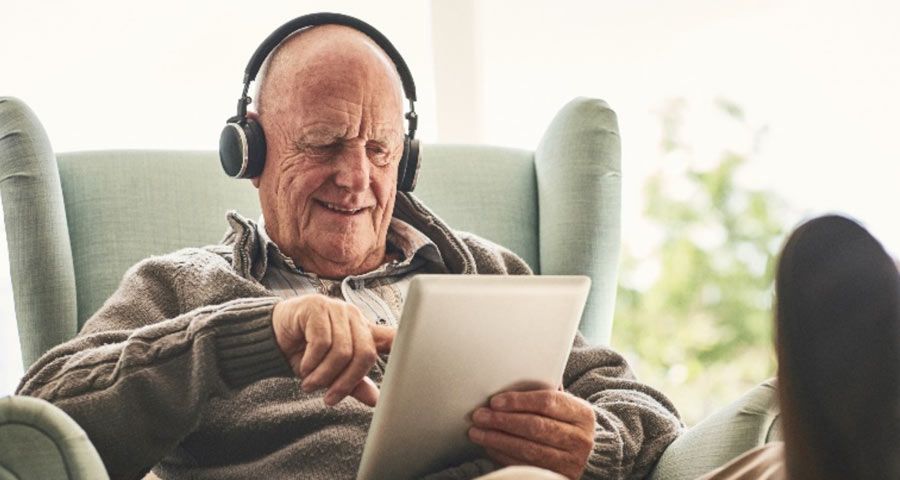Making sure our loved ones are safe while living independently remains a key concern. According to the Health Quality & Safety Commission New Zealand, around 30 percent of people aged 65 and over who live in the community will fall at least once a year, with falls accounting for 74 percent of trauma admissions in older people. Statistics like these can be unnerving for families who are unable to visit regularly or travel as often as they would like to.
However, there are simple steps we can take to make sure they are okay and staying connected during the pandemic.
Schedule regular check in times
Set a time and day with your family members to give them a call or, when it is safe to do so, visit them. Putting a regular check-in time in your diary means you are less likely to put it off for another day or forget altogether. A scheduled call will also give your loved ones something to look forward to.
Not having regular visitors or being able to attend usual social activities can be particularly distressing for those who rely on human interaction. Setting up video calls is a great way to stay connected to people on a more personal level.
Writing letters is another way for people to communicate with loved ones, and a great activity for children to get involved with, sharing loving messages and drawings. Receiving a surprise letter in the mail is also guaranteed to put a smile on their face.
Have an emergency contact list
An emergency contact list is essential whether in a pandemic or not. Make sure your loved ones have a copy on hand and it is easily accessible so they can quickly make a call if something happens. While we can’t be with our loved ones every day, we can make sure we’re only a phone or video call away when they need us. They should also know whom to call to get help in an emergency when family is not contactable. Make sure that they have all your numbers stored in their mobile phone, including work phone numbers and those for alternative contacts, in case they can’t get through on your regular line.
The contact list should also include details of local emergency services, their doctor, pharmacist, nearest hospital, close friends and trusted neighbours. Depending on their situation, it may also be useful to include phone numbers for reliable tradespeople, such as a plumber or electrician.
Arrange home support
Having additional support at home can be a great way to help your loved ones. Cleaners and carers can provide valuable assistance by helping around the house, with shopping, and managing a medical condition. Home support can take some of the pressure off for those struggling to keep up with their daily needs and also provides that necessary personal interaction for mental wellbeing.
Embrace new technology
The pandemic has highlighted the need for greater personal safety and wellbeing, and using technology can help keep your family members safe, secure and connected. ADT’s live streaming cameras are not just for catching intruders in the act, they can also be used to check in on your loved ones at home using your smartphone, tablet or computer. These cameras can only be viewed via a smart device and are ideally positioned at stairs, steps or other high-risk areas around the home to monitor for falls or medical incidents that might require a response.
ADT Home Assist wellness solution is another advanced solution from ADT Security that uses intuitive, real-time technology through a mobile enabled app and personal wearable devices to help loved ones stay constantly connected. The personal alarm can be triggered at the touch of a button wherever they are in the home and will either notify a close contact or ADT Security’s 24-hour monitoring centre, which can escalate a response quickly in the event of an emergency. You can provide your older family members who live independently with confidence that around-the-clock assistance is there when it’s needed most.
For further advice and solutions to help keep your loved ones safe and secure, call us on 0800 111 238.




